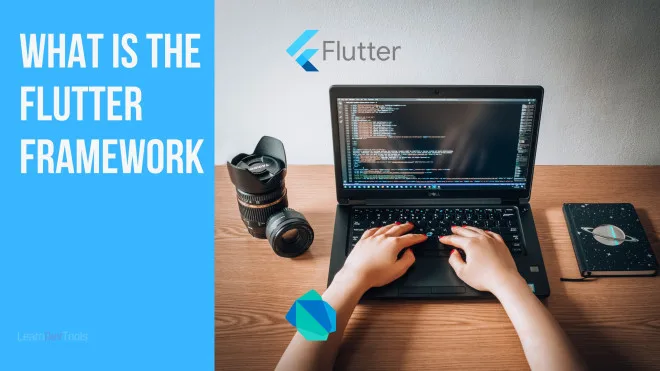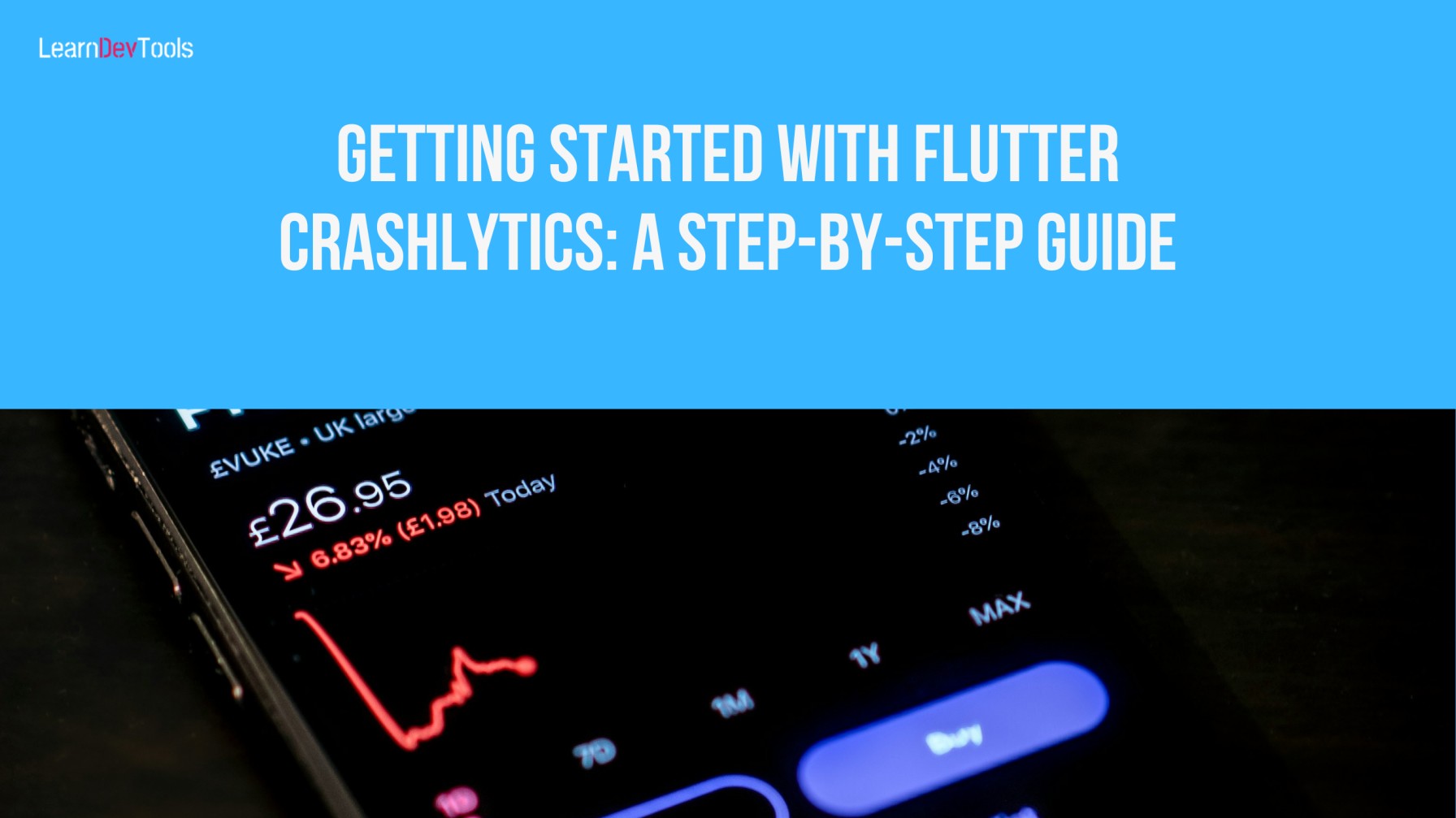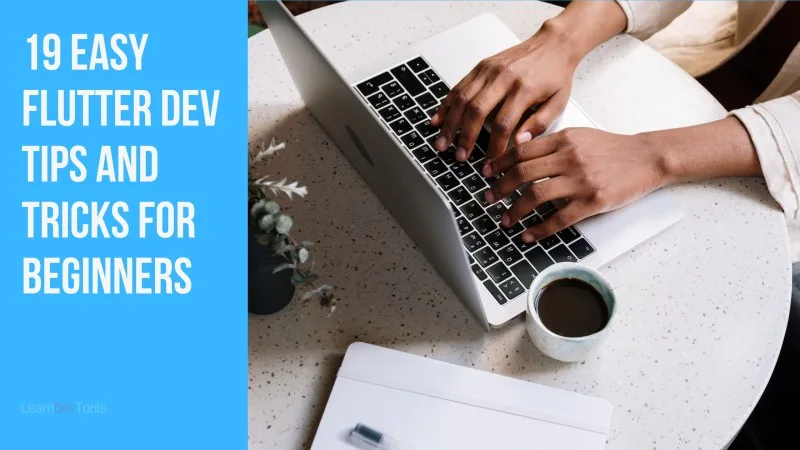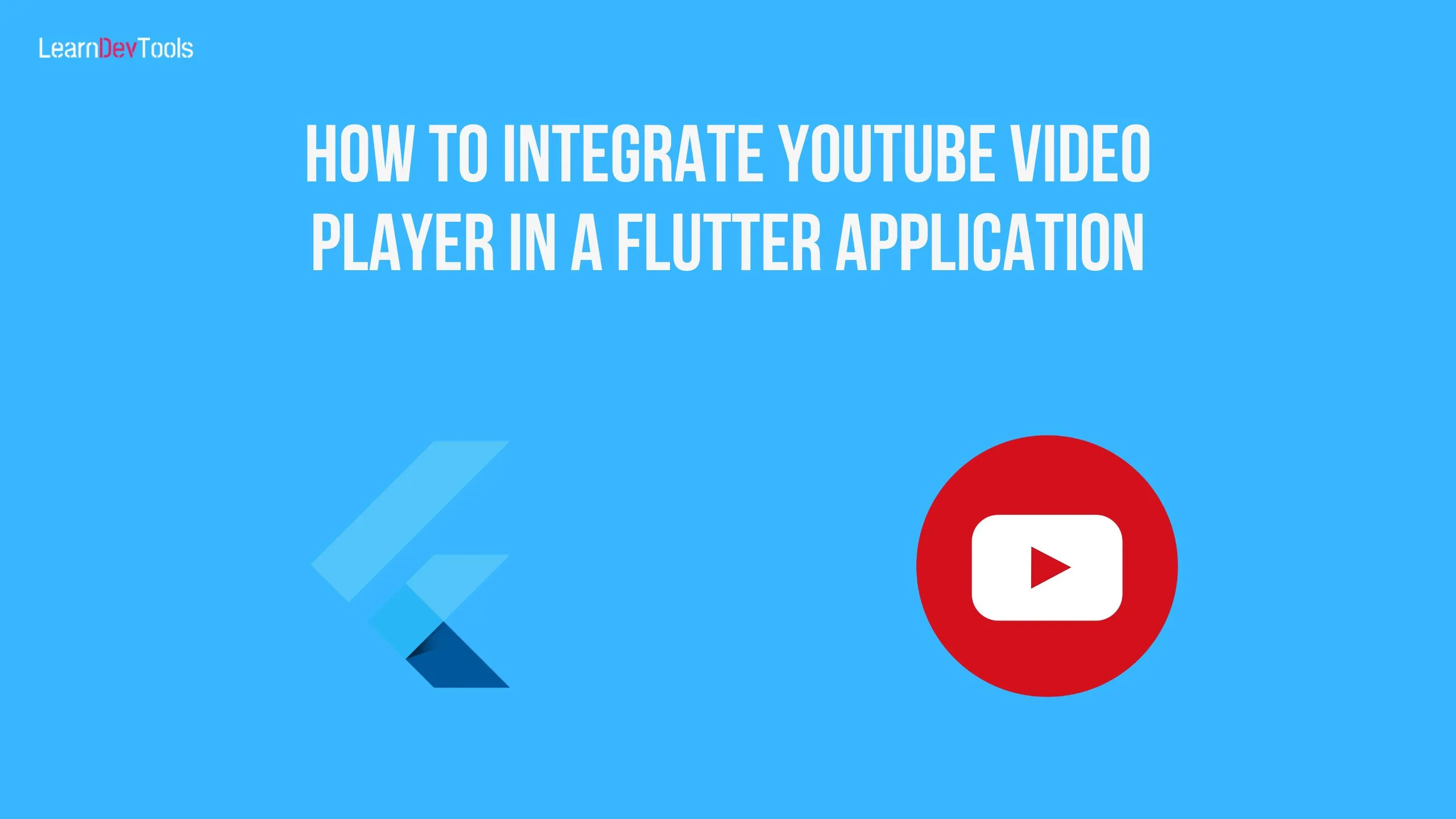Introduction
The demand for mobile applications grows daily due to their popularity these days. Thanks to the existence of various programming tools, developers and organisations can build fast, reliable and beautiful mobile applications with tools like Flutter. Flutter is a free and open source mobile UI framework tool created by Google in 2017 and used to build multiple platform apps with a single codebase.
In this article, you will learn more about flutter including its architecture, key features, advantages and disadvantages of building apps with flutter, and many flutter-related questions. If you are interested to learn more then dick in right away and happy reading.
What is Flutter?
Flutter Framework is an application development platform for building beautiful, robust, native and cross-platform apps with only one codebase. When initially launched, it mainly supported mobile app development. Today Flutter supports application development on six platforms; iOS, Android, Linux, Web, macOS and Windows.
Flutter is Google’s portable UI toolkit for crafting beautiful, natively compiled applications for mobile, web, and desktop from a single codebase. Flutter works with existing code, is used by developers and organizations around the world, and is free and open source.
Flutter dev
Flutter Framework has two important parts:
- A Software Development Kit, it is a collection of tools that will help you build your application. For example, tools to compile your code into a native machine code.
- A UI Framework. The UI is based on Widgets. A widget is a collection of reusable and customizable UI elements. For example buttons, texts, inputs,
You don’t necessarily need to have mobile app development experience to start building with flutter. You need to use Dart, an object-oriented programming language created by Google in 2011 and has greatly improved these past years. If you have worked with Java or JavaScript before, then Dart’s syntax is just similar to theirs.
Why Should you Learn Flutter?
In this section, you will get a sip of why you should get started with Flutter today.
Simple to Learn
Flutter is built in a way to ease app development. If you have used Swift or React native before, you will notice that Flutter is different. Personally, I started mobile app development because of Flutter. I took a liking for its robustness and beautiful UI components plus I can create amazing UI components quickly. I equally like the fact that I can create a native application without much code and it can run on many platforms.
It’s Good for Startup MVPs
These are some reasons I will encourage you to use Flutter to build your app and also for your MVPs.
- It’s cheap to build with Flutter since it’s multi-platform, you don’t need to create and maintain many apps
- You don’t need many developers. One can be sufficient
- It’s performant
- You use widgets to build beautiful UI.
Good Documentation
I was discussing in this article the importance of Documentation, especially for new or emerging technologies. Flutter Framework has good documentation with detailed steps to take in order to accomplish a task. It equally has use case application examples. Each time I had issues while building an app, I just peep the documentation and it solve everything.
Flutter is Supported by VSCode and Android Studio
The two main code editors for developing Flutter apps are Android Studio and VSCode. Android has everything integrated for development. All you need is to add the Flutter and Dart Plugin
As for VSCode, it’s a lightweight tool that has everything configure and ready to use. It equally has a plugin marketplace where you can download Flutter and Dart as well as other plugins like ESlint, and auto-completion code to ease development. I use Android Studio for flutter development since everything is already set up.
Android Studio and VSCode are mostly you but you could use any editor of your choice, everything is up to you. But personally, I will recommend one of those two.
Active Community
With 15k+ stars on Github, Flutter has one of the most active communities online. I recently started sharing my Flutter knowledge on this website. This is actually my first article about Flutter Framework. More content is ahead. While working with Flutter, I stumbled upon many communities including discord, Slack, StackOverflow, Google developer group, and Reddit communities. There are also resources like pub.dev that contains official packages repository for Dart and Flutter apps.
Productivity
Thanks to the flutter Framework hot reload feature, you observe any changes made to your app in real time. Only significant modifications force you to reload the app.
Flutter Architecture
The architecture of Flutter has three layers. The Framework, the Engine and Embedder.

The Framework is the visible part of Flutter based on Dart. This layer is divided into sublayers like Widgets layers, rendering layers, and foundational classes.
The Engine layer is written in C/C++. It provides a low-level implementation of the framework as well as the core API for example, graphics, accessibility support, and text layout
The Embedder allows you to run the Flutter app on any OS.
What are the key features of Flutter Framework?
Flutter Framework is highly used these days and its extension is greatly improving. Some of the amazing the framework offers are:
- It’s Fast. Flutter code compiles to ARM or Intel machine code as well as JavaScript, for fast performance on any device.
- Multi-Platform. Reach users on every screen by deploying to multiple devices from a single codebase: mobile, web, desktop, and embedded devices.
- Developer Experience. Take control of your codebase with automated testing, developer tooling, hot reload and everything else you need to build production-quality apps.
- Stable & Reliable. Flutter is supported and used by Google, trusted by well-known brands around the world, and maintained by a community of global developers.
Source: https://flutter.dev/
What are the Pros and Cons of Flutter Framework?
This section highlights the advantages and disadvantages the flutter framework offers. Let’s first begin with Flutter’s Pros.
Advantages of Flutter Framework
- Flutter has many active communities
- It has good Documentation
- It has a rich set of widgets
- It’s free and open source
- It’s a cross-platform build once deploy everywhere
- Flutter has good tools for debugging making it easier to find and fix bugs in Flutter apps
- Dart programming language has good support for automated testing
- Access to device hardware. Flutter apps can access the full range of hardware and software like the camera, GPS, and fingerprint scanner
- Close-to-native app performance.
- Power by Google
- Create beautiful, highly-customized user experiences
- Build custom widgets easily.
- You only need to know dart to get started
Cons of Flutter Framework Framework
- Dart is not a popular programming language even though it’s a great language.
- Some components are only available for Android or iOS devices.
- It’s still an emerging framework.
- Some flutter packages are limited
- Flutter Framework still solely depend on Dart so you cannot really use it with another programming language since both offer great features
- Flutter app size is relatively large compared to native Java and Kotlin
Examples of Apps built with Flutter Framework
With the exponential increase in app development, many companies and developers tend to use technologies like Flutter. Below are some of the companies that use flutter.

Among the companies using Flutter, you can identify eBay, NUBank, GROUPON, ByteDance, Ubuntu, TOYOTA, and Square.
Some apps build with the flutter framework include:
Frequently Asked Questions about Flutter Framework
These are some of the most asked questions about flutter. I will answer as directly as possible. I hope the answers will be satisfactory. If not you could reach me via my twitter account for additional information. Let’s dig in.
Who Uses Flutter?
With Flutter, you can build beautiful, performant multiplatform apps with minimal cost and complexity. Developers, Companies and even designers use flutter. Top companies using flutter include Google, TOYOTA, Hamilton, Alibaba Group
What Programming Language Does Flutter Framework use?
Flutter and dart virtual machine is written in C/C++ and Skia
What programming paradigm does Flutter Framework Use?
It’s a multi-paradigm programming language. It uses programming paradigms such as Composition, Functional programming, Event-driven programming, Class-based object-oriented programming, Prototype-based object-oriented programming, Imperative programming, Reactive programming, Declarative programming, Generic programming, Concurrent programming, and Constraint programming
Who supports Flutter Framework?
Flutter is supported and used by Google and maintained by a community of developers.
Where can I learn Flutter?
You could learn Flutter via the Flutter Documentation which is essential and rich and provide support. You could equally learn Flutter from certified course platforms like Udemy, FreeCodeCamp
When Should I use the Flutter Framework?
Personally, I use Flutter when I started learning mobile development. Mobile development with Flutter is quite easy to learn so I will encourage anyone willing to learn mobile app development, to begin with, Flutter Framework.
Furthermore, Flutter support many platforms, for this reason, I recommend you use it in your project especially if you have tight deadlines
What are the most popular Flutter Framework Widgets?
Some of the most popularly used widgets include FloatingActionButton, Row, Column, Container, Stack, SilverList and SilverGrid widgets
Is Flutter Backend or Frontend?
Flutter Framework is principally for Frontend Development it eases the creation of beautiful and interactive user interfaces
How much development experience do I need to use Flutter?
Anyone familiar with object-oriented concepts can manage flutter. In fact, you don’t absolutely need to know a programming language to learn flutter. I had a friend back when I was still learning Flutter. He did not have programming skills but after learning flutter for a period of time he could use it for prototyping and development.
What kinds of apps can I build with Flutter Framework?
Flutter supports a wide variety of hardware (such as cameras, GPS, networks, and storage) and services (such as payments, cloud storage, authentication, and ads). Flutter equally supports mobile, web and desktop development. Basically, you can build a variety of applications using it.
Who makes Flutter?
It’s an open source project supported by Google and many other companies
What makes Flutter Framework unique?
Mobile applications built with Flutter do not rely on web browser technologies or a set of widgets that ship with each device.
Does the Flutter Framework work with any editors or IDEs?
Flutter works perfectly with VSCode, Android Studio and IntelliJ IDEA. You can also use the flutter command from the terminal with any editor that supports Dart.
Does the Flutter Framework support Material Design?
Yes, it supports Material Design
Does Flutter come with a testing framework?
Yes, it comes with a testing framework. There are APIs for writing units and integration tests.
Does Flutter Framework come with debugging tools?
Yes, Flutter comes with Flutter DevTools
Does Flutter Framework use my operating system’s built-in platform widgets?
No, Flutter Framework has its own set of widgets, that it manages and renders
What operating systems can I use to build a Flutter app?
Flutter supports development using Linux, macOS, ChromeOS, and Windows.
Can Flutter Framework run any Dart code?
Flutter can run Dart code that doesn’t directly or transitively imports dart:mirrors or dart:html.
How is a hot reload different from a hot restart?
Hot restart reset an app to its initial state while hot reload injects updated source code files into the Dart Virtual Machine that add new classes, methods, and fields to existing classes and also changes existing functions.
Where can I deploy my Flutter app?
You can deploy your flutter app on Android, iOS, the web and desktop.
What devices and OS versions does Flutter run on?
Flutter runs on Windows, macOS, iOS, Linux, Android and the web. This is a detailed list of support tiers
Can I use Flutter inside an existing native app?
Yes, you can add Flutter inside an existing native app. Get more information here
Can I access platform services and APIs like sensors and local storage?
Yes. Flutter Framework gives developers out-of-the-box access to some platform-specific services and APIs from the operating system.
Can I extend and customize the bundled widgets?
Flutter was designed to be easily customizable, so you can change bundled widgets.
Is Flutter ABI compatible?
No, Flutter is not ABI compatible.
Where can I get support?
You can get Flutter support via discord, Slack, StackOverflow, Google developer group, and Reddit communities.
Is Flutter Framework open source?
Yes, Flutter is open source technology. You can find the project on GitHub.
Final Thoughts
Flutter is one of the trending tech stacks any freelancer should have. A study by malt, one of the top French freelance platforms shows that Flutter has grown by +303% on this platform since 2018.
Hopefully you were able to learn many things about flutter that can motivate you to start learning today or sharing the article. If you like this kind of content then feel free to subscribe to the newsletter and get fresh content, tips and tricks for beginners and intermediate level








